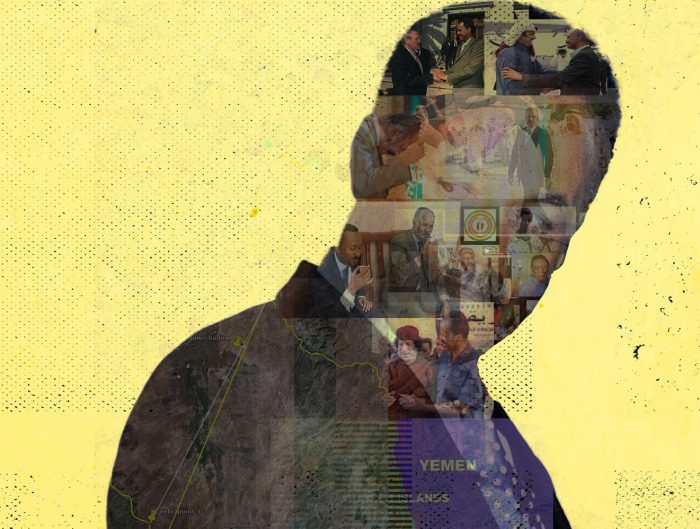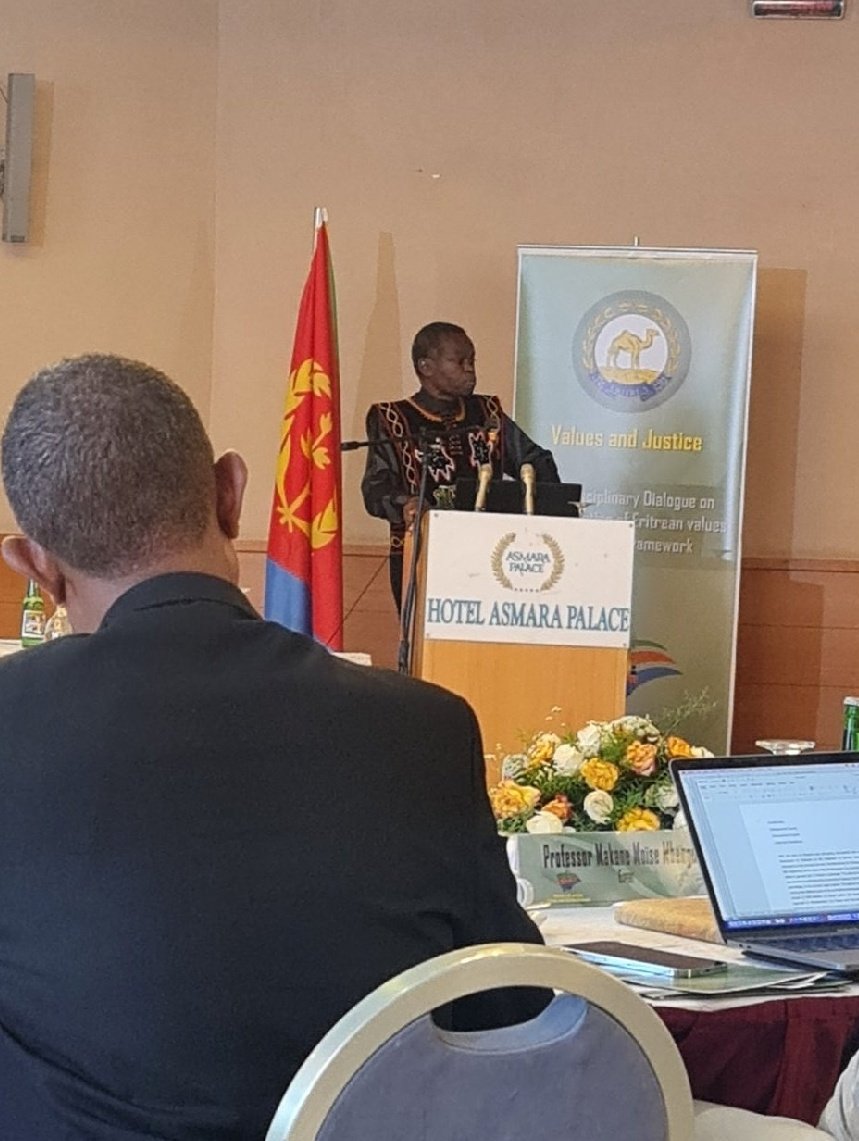It may feel longer but Prime Minister Abiy Ahmed has been Ethiopia’s head of government for only six months.
And six months into his premiereship, he had hundreds of soldiers, armed, heading to his office, with a list of demands.
Here’s how his government dealt with it and, because this is a website that focuses on Eritrea, we will contrast it with how the Eritrean president dealt with his first mutiny. And his second. And his third.
The Ethiopian Mutiny
Some may think that “mutiny” is an overstatement here, but that’s only because some don’t live in Addis Abeba. For those who live there, apparently it caused a lot of panic, not least because Ethiopia hosts a lot of international institutions. People left their offices early, closed shop, picked up their children from schools, and the internet was shut down. So, for a brief period of time, it looked like PM Abiy was going to celebrate his six month anniversary in prison.
What happened to diffuse it is interesting and unique to our times.
Well, first of all, 250 armed men marching in unison are terrifying, even if they are wearing raspberry berets.
Lucky for Abiy Ahmed, he didn’t have to meet them: that’s why heads of governments have deputies. His deputy, Demeke Mekonnen (who asked to resign from his party but was rejected when his party was forcing others to resign and accepting their resignation with regret) was the one sent/volunteered to talk sense to the kids: if you disarm, I will give you the most important thing to your generation: selfies!
Update :- After they are done with their demonstration members of #Ethiopia|n defense forces took selfie with Deputy Prime Minister Demeke Mekonnen.. 😃😃😃 pic.twitter.com/Yr7BmZP8P0
— Naty Berhane Yifru (@Natberh) October 10, 2018
Then it was time for the Dr. Medemmer Show. They were, no doubt, expecting heartfelt language of love, forgiveness and empathy but that’s so summer 2018. Instead, they were asked to drop and give him twenty. Push-ups. Or whatever the British called it in BBC.
This was followed by meetings where the government listened with heightened urgency to the soldiers grievances (pays, benefits); the soldiers apologized to the people and the country for pursuing the right things the wrong way; then, when things settled just a bit, the ringleaders and facilitators were rounded up.
To help you get the courage to go against the grain and demand that the “ringleaders” be given not just due process but a media outlet to tell their side of the story, we will tell you the Eritrean story. And also, on behalf of personal fitness trainers all over the world: that is the wrong way to do push-ups.
Eritrea’s Mutinies: Maybe the fourth time is the Charm?
May 20, 1993: Eritrean soldiers protest about wage and living conditions:
Almost two years after Eritrea’s independence, a month after Eritrea’s referendum for independence and just 4 days shy of its formal declaration of independence, Eritrean soldiers shut down Asmara, including its airport, to demand a reversal of the government’s recent policy to extend the policy of no-pay for combatants for an additional two years. In a meeting with Isaias Afwerki at a football stadium where he was marched, combatants (now soldiers) criticize the emerging ruling class (military officers) and their boozing and prostituting lifestyles and demand they be given a salary. Once President Isaias Afwerki realized the criticism was not directed at him but his colleagues, he agreed to their demands but chastises them for pursuing the right things the wrong way. They would be getting a salary, but that all their subsidies would now be taken away: housing, healthcare, food. Subsequently, hundreds of the “ringleaders” are arrested, many of whom would be given “presidential pardon” years later.
Most Eritreans had no knowledge of this and those who did dismissed it as the grievances of spoilt brats ruining our celebration. When they later learned that Isaias Afwerki had said, “what, do they expect us to slaughter sheep for them every Thursday”, people just shook their head at his quick-wittedness. What a swell guy Eritrea is blessed to have.
July 11, 1994: Eritrean disabled war veterans in Mai Habar protest their overcrowded living quarters and their inadequate care
After months of fruitless negotiations, the disabled war veterans housed at Mai Habar decide to go to Asmara (31 kilometers west) to appeal their case to government officials. They decide that those who can’t walk will take trucks and those who can use wheelchairs or walk, will walk the distance. They are blocked and after a day-long stand-off, shots are exchanged. The road from Nefasit to Asmara (and thus Ethiopian trucks en route from Massawa port to Tigray via Asmara) are also blocked. Several disabled veterans are shot dead and the living are not allowed to take their dead with them. The next day, the ring leaders are arrested and those who signed a “regret letter” are released a year and half-later.
Most Eritreans had absolutely no clue that this happened because it would have been impossible to believe that EPLF combatants would shoot at their own comrades, and those who paid with their limbs to make Eritrea an independent country. Even now, it is impossible for many to believe it. This handicapped war veteran now lives in an Ethiopian refugee camp, probably worried of what deals Abiy Ahmed is striking with Isaias Afwerki and that one of them not be his forceful return to a country he gave his limb for.
January 21, 2013: Members of Eritrean armed forces take over the Eritrean Ministry of Information base at Forto hills in Asmara to demand constitutionalism, rule of law, release of prisoners.
Early in the morning of January 21, dissident soldiers led by Colonel Seid Ali Hijay (“Wedi Ali”) take over the TV station at “Forto”, the Ministry of Information, and demand that their call for constitutionalism and release of political prisoners be read on the air. The transmission is cut off. “Negotiators” are sent who appeal “in the name of our martyrs” (a disarming invocation) and in the shootout there are unknown number of either wounded or fatalities (still not clear 5 years later.) The Eritrean government had nothing to say about the “incidents of January 21” for almost a month (it loved the drama) and then interviewed President Isaias Afwerki to explain it all. He said that a handful of people with unclear goals had confused some gullible people and that he and his ministers were all sitting around and watching them to see how their mistake would lead to other mistakes but it was an insignificant incident.
This “insignificant” incident would lead to the arrest of some of the biggest names in the ruling party and the government including: Abdella Jaber (member of the ruling party’s Executive Committee); Ahmed Haj Ali (Minister of Energy and Mines), Mustafa Nurhussen (Regional Administrator); Suleiman Haji (Mayor of Mendefera), Jaber Der’e, and Major General Omar Tewil (who died in prison.) PM Abiy Ahmed may say “drop and give me 20” but Isaias Afwerki says, “drop and enjoy your solitary confinement” and, disturbingly, Abiy Ahmed looks at Isaias affectionately.
Unlike the previous mutinies, thanks to globalization and the Internet, we all knew about the Forto “incident” in real time. But by then, when we had taken a little tadpole and converted him, with our adulation, into a fire-breathing dragon, it was too late to fight Isaias Afwerki with our pinpricks.
Lessons for Ethiopians
1. Narrative: Whoever controls the narrative controls the reality. If you notice in all the mutinies of Eritrea, or the student demonstrations of last year, the only narrator is President Isaias Afwerki. Nobody else has a voice. The disabled Mai Habar veteran telling the story? He is doing it in exile, in Ethiopia, more than twenty years later. So, Ethiopians: be sure to hear the story of what happened from multiple sources including military officers and rank and file who do NOT regret their decision (or were given a script to read.)
2. Don’t “No Big Deal” It: It is a big deal when armed men want to bring about change because they feel the current system is not working for them. Even if the men wear raspberry berets. Learn from our mistake: the May 20, 1993 uprising was literally bookended between sports coverage. Italian soccer games at that.
As an aside, Dear Seare Mekonnen: what is the point of camouflages if you wear raspberry berets?
3. Journalists: Do Your Jobs: If you chose journalism as a profession, it is presumably because you feel there is a critical role for journalists in a democracy. Do not allow yourself to be spoon fed news by the government. News produced by governments is always propaganda. They can’t help it. Dig deeper. You are not being unpatriotic, you are not creating disharmony if you dig for the truth. Don’t believe the promise of a government which tells you that it will disclose more information in due time. Governments say that to stall, and assured in the knowledge that people have short memories. If you watch all the videos linked above, President Isaias Afwerki always says that more information will be disclosed in “due time” and it never is.
If you watch the video even more closely you will notice the change in tone from that of 1993 (when President Isaias Afwerki appeared to actually care) to 2013 (when he was dismissive about his former colleagues raining heaps of insults on them.) Power corrupts and absolute power corrupts absolutely. If arrogance could be bottled, Isaias Afwerki would be the world’s richest man. Don’t let Abiy become Isaias.





Leave A Reply